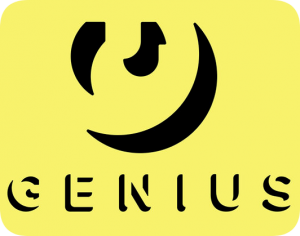 Since 2009 the website Genius has provided music lovers with a reliable source for lyrics to countless songs. A few years ago, though, the company noticed that someone else was exploring the site along with its usual batch of curious fans. The situation started when Genius published the lyrics to the hit song “Panda” by Desiigner with help from the artist himself. Since the company received assistance directly from the source, their lyrics served as the only accurate transcription of “Panda” on the Internet. That is until a Genius software engineer read Google’s version of the song.
Since 2009 the website Genius has provided music lovers with a reliable source for lyrics to countless songs. A few years ago, though, the company noticed that someone else was exploring the site along with its usual batch of curious fans. The situation started when Genius published the lyrics to the hit song “Panda” by Desiigner with help from the artist himself. Since the company received assistance directly from the source, their lyrics served as the only accurate transcription of “Panda” on the Internet. That is until a Genius software engineer read Google’s version of the song.
“We noticed that Google’s lyrics matched our lyrics down to the character,” said Genius’s Chief Strategy Officer Ben Gross. That’s when the company decided to try an experiment: it created a watermarking system using a series of apostrophes embedded into patterns. When these apostrophes were converted into the dots and dashes of Morse Code, they spelled out the phrase “Red Handed.” After embedding these watermarks, the company said it discovered more than 100 examples of Google directly lifting lyrics from the Genius website. In response, Google said it would investigate the matter while also claiming that the stolen content was the result of outside partners who were “not upholding good practices.”
Still, Genius isn’t the only company that’s concerned about Google’s practice of placing common search results into “information panels.” The search giant developed this feature a few years ago in order to keep users on Google’s page rather than clicking away to another site. For instance, search for “supply and demand” and the first thing that appears is an information panel with the definition included. Although a user could click on a link to learn more, oftentimes the information panel provides everything they were looking for. According to an analytics firm, in March 62 percent of Google searches did not result in a click to another website. Meanwhile, desktop searches failed to result in a click about 35 percent of the time compared to just 9 percent in 2016. With Google becoming increasingly dominant, antitrust activists as well as small tech firms worry that the Silicon Valley company could be growing too powerful.
Questions:
- Why is Genius concerned about Google potentially stealing its content?
- Do you think tech giants like Google should be broken up by regulators? Why or why not?
